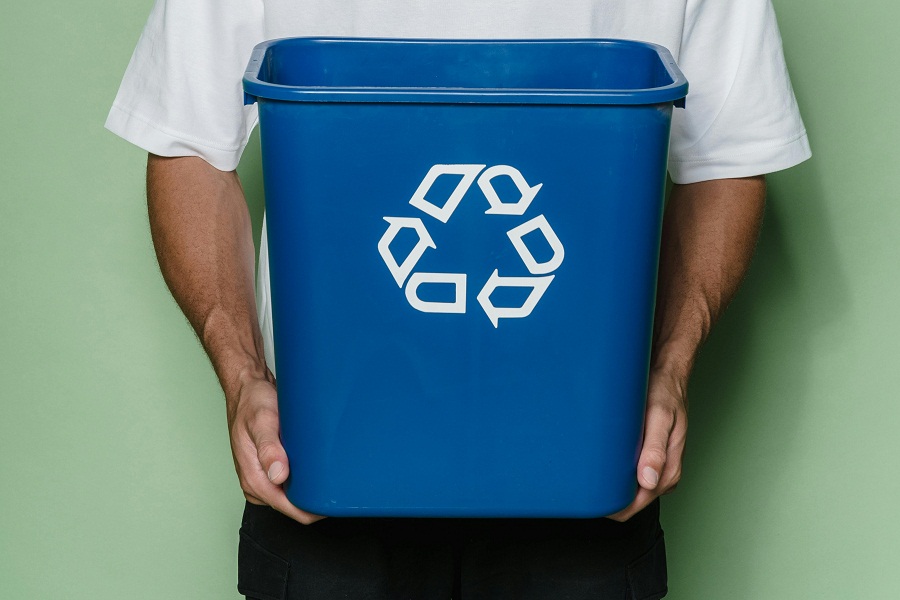
Published :
Updated :

The concept of transforming waste into wealth is not just a novel idea; it has become a crucial pathway towards sustainable living. As the country grapples with rapid urbanization and environmental challenges, adopting eco-friendly practices can lead to a more sustainable future.
Sustainable living is a lifestyle that aims to reduce an individual's or society's use of the Earth's natural resources. It involves making conscious choices that minimize waste, conserve energy, and promote the responsible use of resources.
The benefits of adopting eco-friendly practices are manifold. First and foremost, these practices help reduce pollution and conserve natural resources. For instance, recycling and composting can significantly decrease the amount of waste sent to landfills, which is a pressing issue in urban areas like Dhaka. Understanding the processes and ways to manage our waste is necessary for a sustainable life.
Recycling
Recycling is one of the most effective ways to manage waste. We can set up local recycling programs to collect materials such as plastic, paper, and glass. Individuals can also participate by segregating waste at home and taking recyclable materials to designated collection points.
Composting
Composting organic waste is another practical tip. Households can create compost bins to recycle kitchen scraps and garden waste. This not only reduces the volume of waste but also produces nutrient-rich soil for gardening, promoting a circular economy within local communities.
Energy-saving tips for home
Energy conservation plays a crucial role in sustainable living, and there are several simple yet effective strategies for reducing electricity consumption at home. First, consider using energy-efficient appliances, which have high energy-efficiency ratings and help lower electricity usage.
Switching to LED bulbs is another excellent choice, as they consume significantly less energy than traditional incandescent bulbs and last much longer.
Designing a home to maximize natural light can significantly reduce the need for artificial lighting during the day. These measures can reduce the use of electricity.
Only steps can't make our environment clean and let us maintain a sustainable lifestyle. Success stories of initiatives from different communities can help us understand and engage people on different levels to work together.
For example, the 'Clean Dhaka' campaign encourages residents to participate in regular clean-up drives and promote recycling. Another notable success is the 'Green Schools' initiative, where educational institutions incorporate sustainability into their curricula, teaching students the importance of eco-friendly practices from a young age.
In the process, people have to be educated to make an effort to lead a sustainable lifestyle.
One can educate oneself by attending workshops and community events organized by educational institutions, NGOs, and government agencies that focus on environmental issues.
Online courses offered by platforms like Coursera and edX provide accessible learning opportunities on sustainability topics. Joining local sustainability groups allows individuals to share knowledge, resources, and best practices while engaging in hands-on projects and reading relevant literature, such as books, articles, and reports discussing sustainability.
Following numerous organizations on social media and visiting their websites can provide valuable resources and updates on sustainability efforts in the country. Social media and their websites keep one updated on the latest news, events, and initiatives related to sustainable development.
Embracing the three Rs 'Reduce, Reuse, Recycle' in our daily lives can help us a lot in this process. Before discarding items, consider whether they can be reused or recycled.
Adopting these practices can help alleviate pressure on landfills and reduce pollution in urban areas like Dhaka, where waste management is a significant challenge.
Be alert while shopping
Make a conscious effort to purchase from local markets and businesses that prioritize sustainable practices. This not only supports the local economy but also reduces the carbon footprint associated with transporting goods from distant locations.
By choosing locally sourced products, one contributes to a more sustainable food system and helps preserve local agricultural practices.
Joining local sustainability groups or initiatives to share knowledge and resources will help us help each other on different levels, especially when adapting to a new lifestyle.
Participating in local clean-up drives, tree-planting campaigns, or community gardens fosters a sense of belonging and shared responsibility for the environment.
Samiha Mamun is an undergraduate student of Army IBA (Affiliated to Bangladesh University of Professionals), Savar, Dhaka. She can be reached at samihamamunmeem@gmail.com


 For all latest news, follow The Financial Express Google News channel.
For all latest news, follow The Financial Express Google News channel.